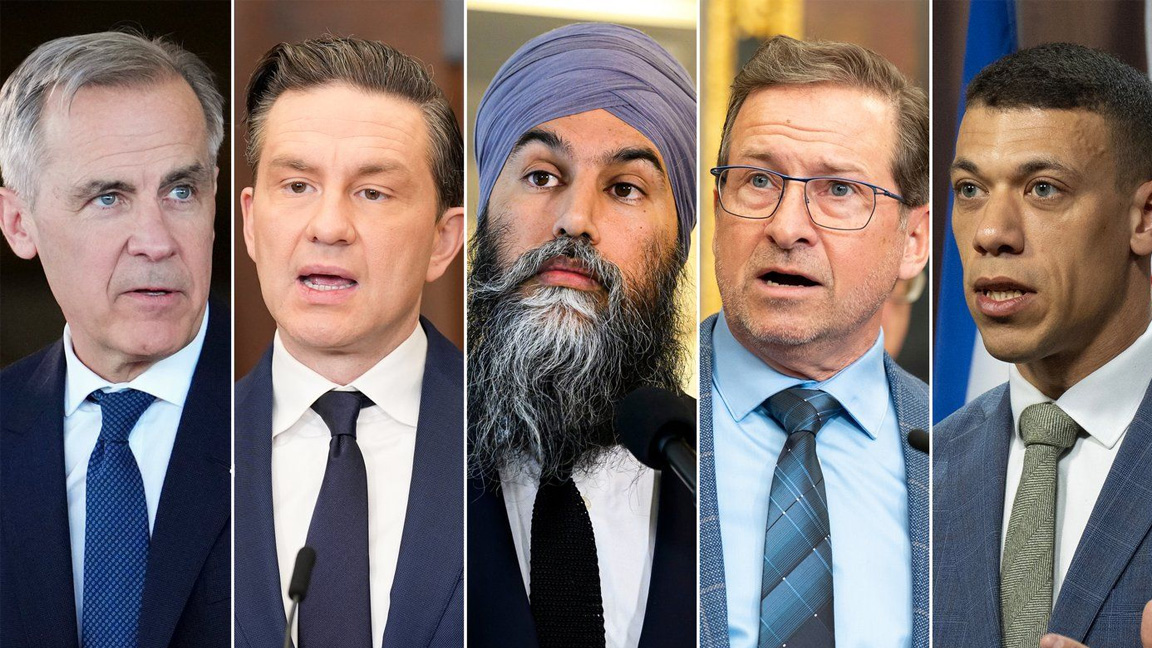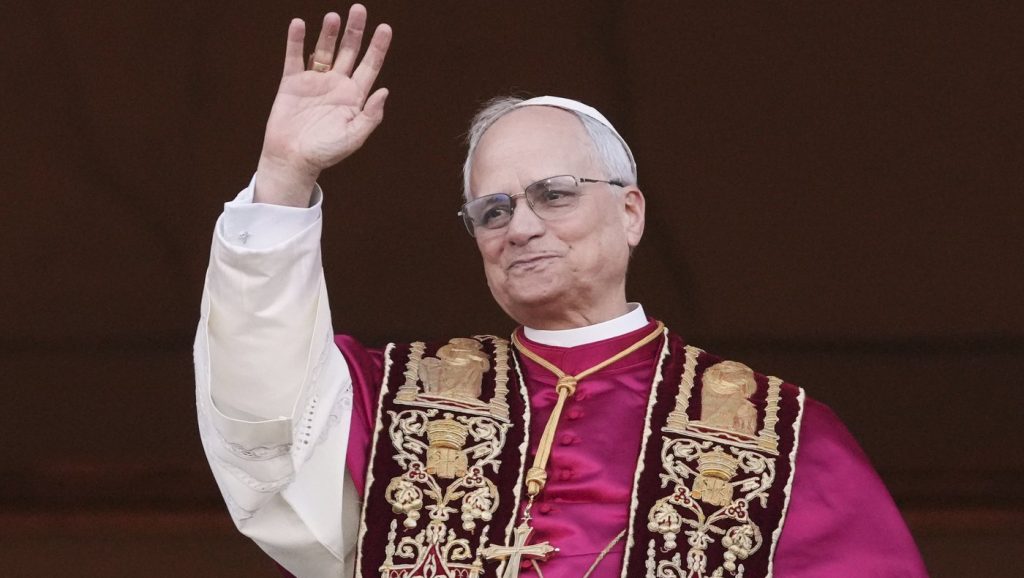Federal election 2025: Polls closed across Canada, Liberals take early lead

Posted April 28, 2025 4:00 am.
Last Updated April 28, 2025 10:04 pm.
With polls now closed across Canada, early results are showing the Liberal Party of Canada taking an early lead following a short, intense and heated federal election campaign.
As of 10 p.m. EDT, the Liberals were leading in 95 ridings, the Conservatives were leading in 75 ridings, the Bloc Québécois were leading in 14 ridings and the NDP were leading in one riding..
The first polls closed in Newfoundland and Labrador at 7 p.m. EDT. followed by Nova Scotia, New Brunswick and PEI at 7:30 p.m. EDT. Polls closed in Quebec, Ontario, Manitoba, Saskatchewan and Alberta at 9:30 p.m. EDT, and the final polls in British Columbia closed at 10 p.m. EDT.
Liberal Leader Mark Carney, Conservative Leader Pierre Poilievre and NDP Leader Jagmeet Singh spent weeks pitching their cases to voters.
Each of the party leaders settled into their home ridings Monday after 35 days on the campaign trail in an eventful, but compressed election period that lasted the minimum 37 days.
Poilievre arrived at a polling station in his Carleton riding on Monday morning and encouraged Canadians to “get out to vote — for a change,” echoing his campaign slogan as he dropped his own ballot in the box.
He wrapped up his campaign with a rally Sunday night in his home riding — one of the seats that’s expected to be a close contest between the Liberals and the Conservatives as votes are counted tonight.
Singh, who cast his ballot amid the record-setting advance voting turnout earlier in the month, was still campaigning in Port Moody, B.C., on Monday. He joined supporters waving signs on the side of the road and offered inspiration to the NDP die-hards who were headed next to knock on doors and get out the vote.
The message Singh wanted them sharing at B.C. doorsteps was about electing New Democrats to stand up to whichever party ends up forming government.
“Remind people, it’s all because of you,” he said. “Because you vote NDP, we’re able to fight for you.”
Carney, the former central banker and political neophyte, presented himself during the campaign as a safe pair of hands for a country threatened by U.S. President Donald Trump, while Poilievre focused on addressing crime and the high cost of living and Singh pushed to protect social programs he argued are under threat.

Trump loomed large over the campaign with his tariff threats and calls for Canada to become a U.S. state, occasionally pushing Carney off the campaign trail to act in his capacity as prime minister.
He even weighed in early on election day via a post on his Truth Social platform, where he repeated those calls and wished “good luck to the Great people of Canada.”
Voting was disrupted in on Windsor, Ont., riding on Monday after a fire closed down a recreation centre that was serving as a polling station.
Some voters in the Windsor–Tecumseh–Lakeshore riding were evacuated from the WFCU Centre and directed instead to a nearby high school to vote.
Speaking to reporters after casting a ballot in his own riding, Bloc Québécois Leader Yves-François Blanchet said he was more impatient than nervous as he waited to see his party’s fortunes later Monday.
Unlike his opponents, Blanchet has not framed the election as being the most significant in a lifetime.
“It is an important election, like any election is important, it should never be taken lightly,” Blanchet said.
On the final full day of the campaign, all major party leaders paused to address a deadly vehicle attack at a Filipino community event in Vancouver that took the lives of at least 11 attendees, leaving more wounded in the hospital.
The Liberals have seen a massive rebound since the start of the year, with most polls now suggesting they lead the Conservatives, who were long favoured to win a majority government while former prime minister Justin Trudeau was in power.

Polls suggest the NDP could lose many of its seats as left-centre voters turn to the Liberals in an effort to prevent Poilievre from forming government.
When Parliament was dissolved at the start of the year, the Liberals held 153 seats in a minority government, and the Conservatives formed the official opposition with 120 seats. The Bloc Québécois held 33 seats, the NDP held 24, and the Greens held two seats. There were three independent MPs at the time.
Because of changes to riding boundaries, the 2025 general election will see 343 seats contested, up from the previous 338.
That means in order for any one party to reach majority status in the next Parliament, it would need to secure a minimum of 172 seats.
With files from The Canadian Press’ Sidhartha Banerjee and Rianna Lim








